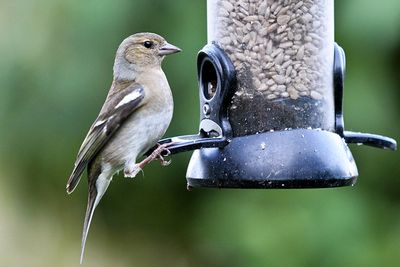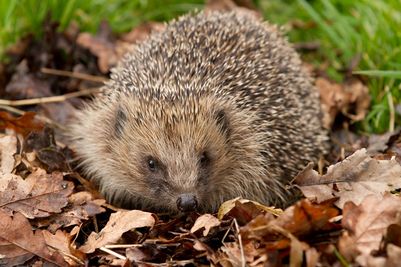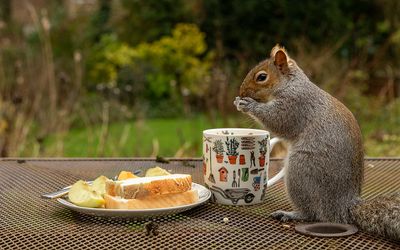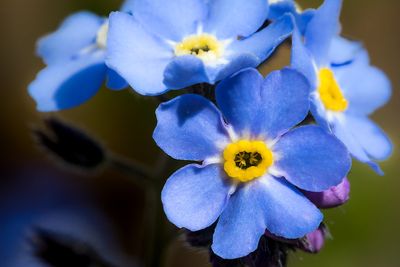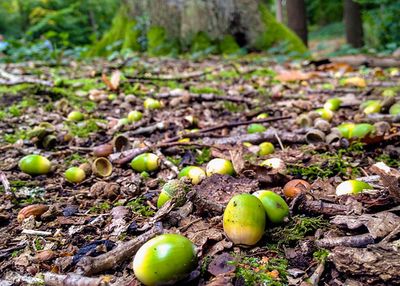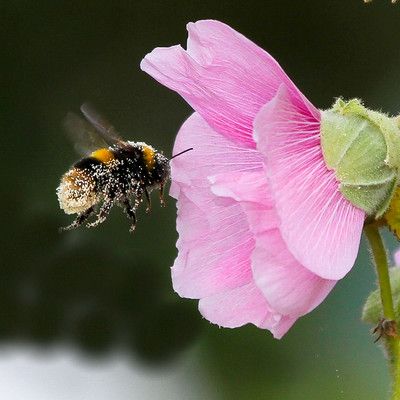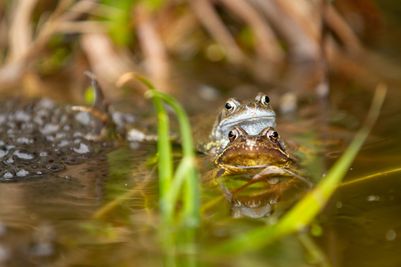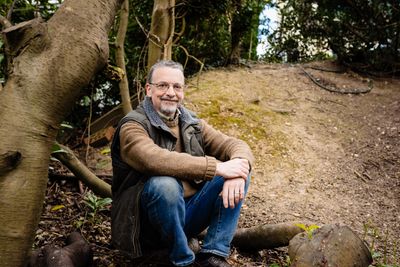2025 wildlife resolutions – small steps for big impacts
Published:
Read Time: 5 mins
As we step into 2025, it's a great time to think about how we can make our outdoor spaces a little more welcoming to the wildlife around us. Whether you’re an avid nature lover or just starting to notice the little creatures in your garden, there are simple steps we can all take to help protect and nurture the animals, insects and birds that share our world.
To help you get started, Sean McMenemy, nature expert and founder of Ark Wildlife, shares some simple yet impactful resolutions you can embrace to give wildlife a little extra love.
Be a trusted water supply
“Water is essential for life and wildlife needs it just as much as we do! Even in urban areas, birds, bees and small mammals will flock to a reliable water source, especially during dry spells. Start small with a shallow dish of fresh water, making sure to clean and refill it regularly to keep it safe and appealing.
“If you want to go bigger, consider installing a wildlife pond. It doesn’t have to be large – a small, lined hole with a mix of submerged plants and shallow edges can support frogs, dragonflies, and other aquatic creatures. Add pebbles or logs around the edge to provide basking spots and safe access for creatures of all sizes. A trusted water supply is a gift that wildlife will appreciate year-round!”
Explore and connect with nature
“Getting outdoors is one of the best resolutions you can make – for yourself and for wildlife. Spending more time in nature gives you the chance to witness the wonders of the natural world firsthand. It might be as simple as spotting a robin hopping through your garden, marvelling at squirrels scampering in the park, or catching a glimpse of a deer at the edge of a forest.
“Why not set yourself a challenge to explore somewhere new each month? Check out local nature reserves, wander through woodlands or stroll along coastal paths. Bring binoculars to get a closer look at birds and use our handy online wildlife guides to identify your finds.
“If time is short, don’t worry – you don’t have to venture far to connect with nature. Take ten minutes to sit quietly in your garden, on your balcony, or even by a window. Watch and listen as the wildlife comes to you, from birds flitting about to bees buzzing among flowers.”
Welcome feathered friends
“Birds bring so much joy to our gardens and outdoor spaces, and they do a lot of good too, like keeping pests in check and spreading seeds. Giving them a helping hand is simple and rewarding, and one of the easiest ways to start is by providing a safe place for them to rest and nest.
“A nest box is a great option, offering birds a secure spot to raise their young, especially as natural nesting sites like old trees and hedges are harder to find these days. Mount your box on a sturdy wall or tree, keeping it sheltered from wind and direct sunlight. And don’t forget to clean it out in autumn to give the birds a fresh and pest-free home for next season. For year-round support, consider adding a roosting pouch to your garden. These cosy little shelters are perfect for keeping birds snug and safe during colder weather, giving them a warm spot to rest on chilly nights or in stormy weather.
“You can also show your feathered friends some love by offering food. A mix of seeds, suet and nuts is like a buffet for birds, especially in the colder months when natural food can be harder to find. Place your feeders somewhere safe and visible, so the birds can snack without worrying about predators!”
Build an insect hotel
“Don’t forget the small critters! Insects like bees, butterflies and beetles play essential roles in pollination and pest control. Building an insect hotel is a radically simple yet super effective way to support local bug life and biodiversity in your garden.
“An insect hotel can be as simple or elaborate as you like. Use natural materials such as wood, hollow stems, pinecones and bark to provide shelter. Stack them securely in a wooden frame or box and place your hotel in a sunny, sheltered spot. Even a bundle of hollow bamboo can make a great home for solitary bees. Watching these hardworking insects move in and go about their lives is endlessly fascinating – and knowing you’re supporting them feels great too!”
Go wild with your garden
“If you’re a bit of a neat freak in the garden, letting things get a little wild might feel daunting. But giving nature some room to breathe is one of the best gifts you can offer local wildlife.
“Start by designating a patch of your garden to grow wild. Let grasses grow long and allow wildflowers like daisies and dandelions to bloom – they're vital food sources for bees and butterflies. Planting native species is also key, as they’re more likely to support local insects, birds and mammals. If you have the space, think about planting a hedge to offer shelter, food and a safe corridor for wildlife to move through.
“Avoid the use of pesticides as they can harm the very creatures you're trying to support. Instead, embrace the natural balance – insects and birds can help manage pests for you if your garden is a welcoming space for them.”
To browse Ark Wildlife’s range of solutions for wildlife, visit www.arkwildlife.co.uk.
Ends
Editors notes
Ark Wildlife is a UK-based company specialising in wildlife-friendly products and solutions. They are known for providing a wide range of products designed to support and encourage wildlife in gardens and outdoor spaces, while inspiring its customers to make one small, simple step to help nature thrive.
Ark Wildlife offers a wide array of bird feeders, bird foods, and bird care accessories to attract and nourish birds such as robins, blue tits, sparrows, and other garden birds. They also provide habitats for hedgehogs, bats, and insects, aiming to create a balanced and biodiverse ecosystem in domestic environments.
The business was founded by wildlife enthusiast Sean McMenemy, an expert with an unparalleled understanding of garden wildlife which dates back to a passion developed during his childhood. He is regarded as a leading authority on garden wildlife and has personally driven more innovation, quality and convenience to the bird food and wildlife market than anyone else.

